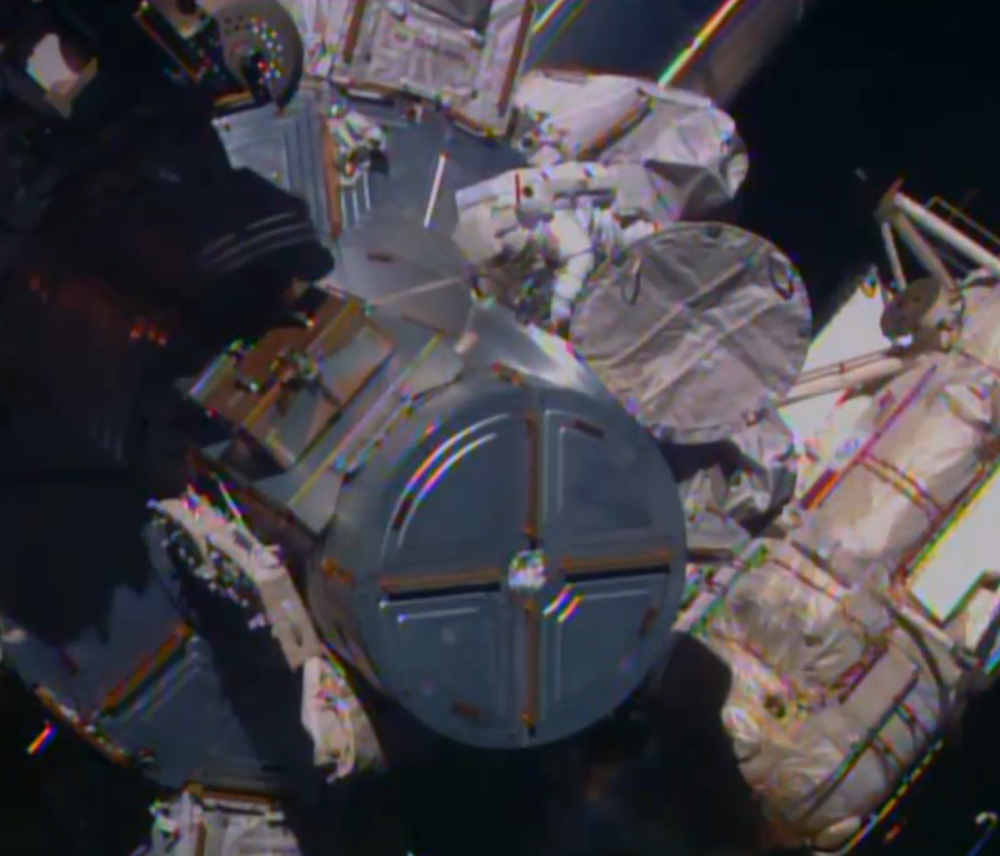CAPE CANAVERAL, Fla. — Spacewalking astronauts routed cables outside the International Space Station on Saturday, a tricky and tiring job that needs to be completed before new American-made crew capsules can dock.
It was the first of three spacewalks planned for NASA astronauts Butch Wilmore and Terry Virts over the coming week.
Altogether, Wilmore and Virts have 764 feet of cable to run outside the space station. The longest single stretch, for installation Saturday, was 43 feet.
“Broadening my resume,” Virts observed as he started laying cable.
NASA considers this the most complicated cable-routing job in the 16-year history of the space station. Equally difficult will be running cable on the inside of the complex.
The extensive rewiring is needed to prepare for NASA’s next phase 260 miles up: the 2017 arrival of the first commercial spacecraft capable of transporting astronauts to the orbiting lab.
NASA is paying Boeing and SpaceX to build the capsules and fly them from Cape Canaveral, which hasn’t seen a manned launch since the shuttles retired in 2011. Instead, Russia is doing all the taxi work – for a steep price.
The first of two docking ports for the Boeing and SpaceX vessels – still under development – is due to arrive in June. Even more spacewalks will be needed to rig everything up.
There were so many cables – up to 10 on Saturday to deal with – that NASA color-coded them. That helped the spacewalkers only so much; they expected a lighter blue for one of the lines.
“I worked up a lather on that one,” Wilmore informed Mission Control. After successfully attaching the first four cables, he added, “I’ve got to cool down.”
It was the first spacewalk for Virts, who arrived at the space station in late November. He savored the moment as he floated out high above the South Pacific. “Pretty cool,” he said.
The second spacewalk will be Wednesday and the third on March 1.
Spacesuit concerns stalled the work by a day.
NASA wanted to make certain that the suits worn by Wilmore and Virts had reliable fan and pump assemblies. Two other fan-pump units failed aboard the space station in recent months and were returned to Earth earlier this month for analysis. Corrosion was discovered, the result of water intrusion from testing.
Send questions/comments to the editors.



Success. Please wait for the page to reload. If the page does not reload within 5 seconds, please refresh the page.
Enter your email and password to access comments.
Hi, to comment on stories you must . This profile is in addition to your subscription and website login.
Already have a commenting profile? .
Invalid username/password.
Please check your email to confirm and complete your registration.
Only subscribers are eligible to post comments. Please subscribe or login first for digital access. Here’s why.
Use the form below to reset your password. When you've submitted your account email, we will send an email with a reset code.